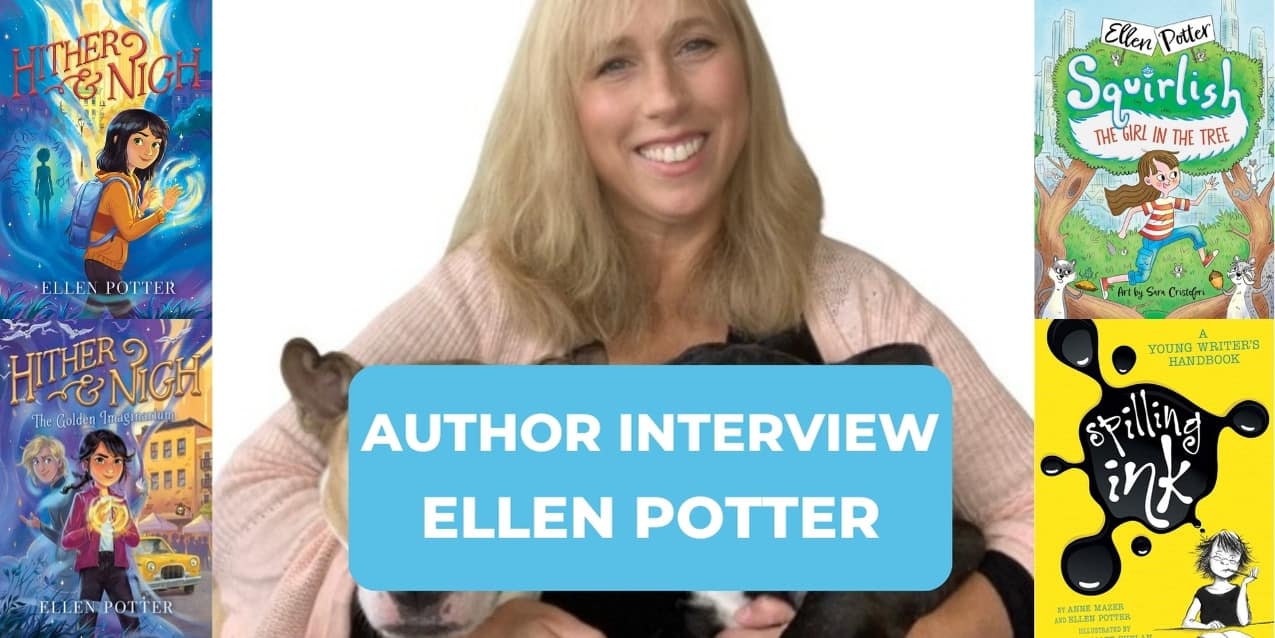I met author Ellen Potter years ago when her book Spilling Ink came out. We’ve been friends ever since. Her writing always entertains and impresses me — it’s accessible for kids, interesting, and extremely creative. Simply put, she’s not just a friend but also one of my favorite authors of middle grade and chapter books.
To celebrate the upcoming release of the second book in the Hither and Nigh series, I’m interviewing Ellen so you can get to know her, too.
Buy her books (view them all here,) read her books, and share her books with the children in your life!
Newsletter subscribers, you will have the opportunity to win a copy of Ellen’s recent chapter book, Squirlish! If you’re not already a subscriber, subscribe here.
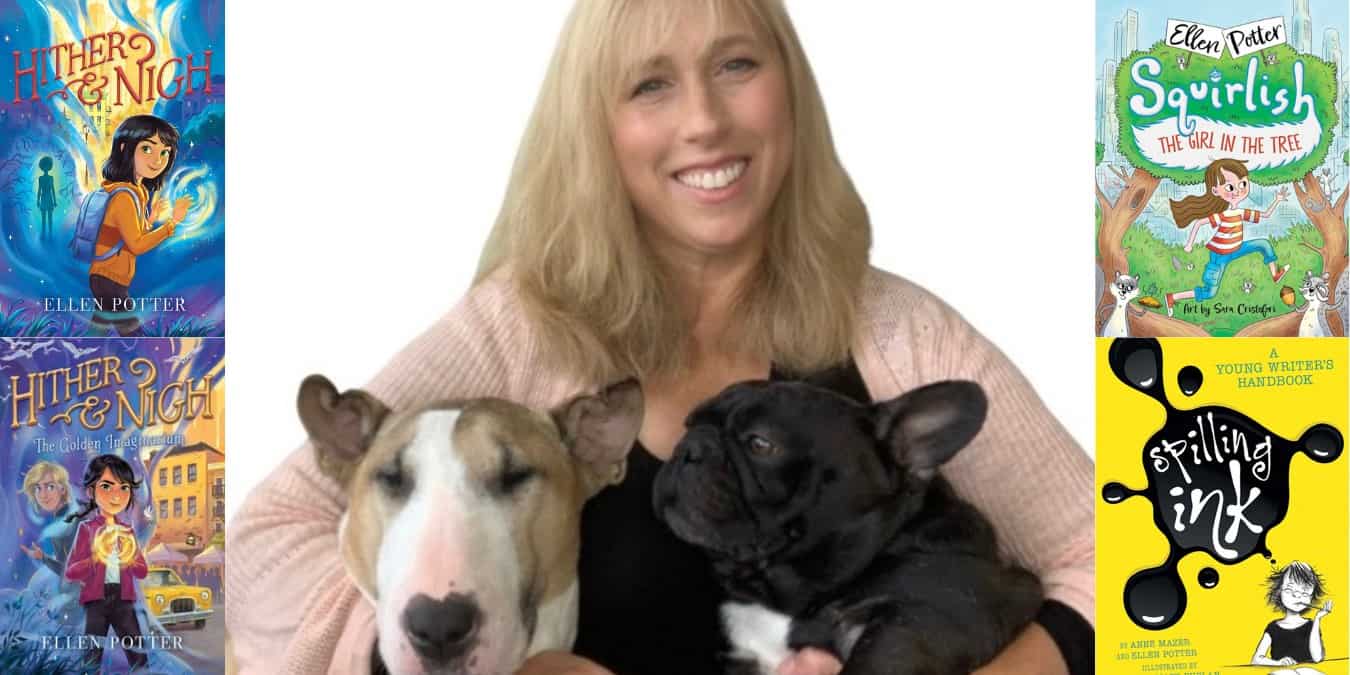
Author Interview with Ellen Potter: What If’s and Writing Tips
Melissa: I adore your most recent chapter book, Squirlish. Can you tell us more about the series and how you thought of the idea?
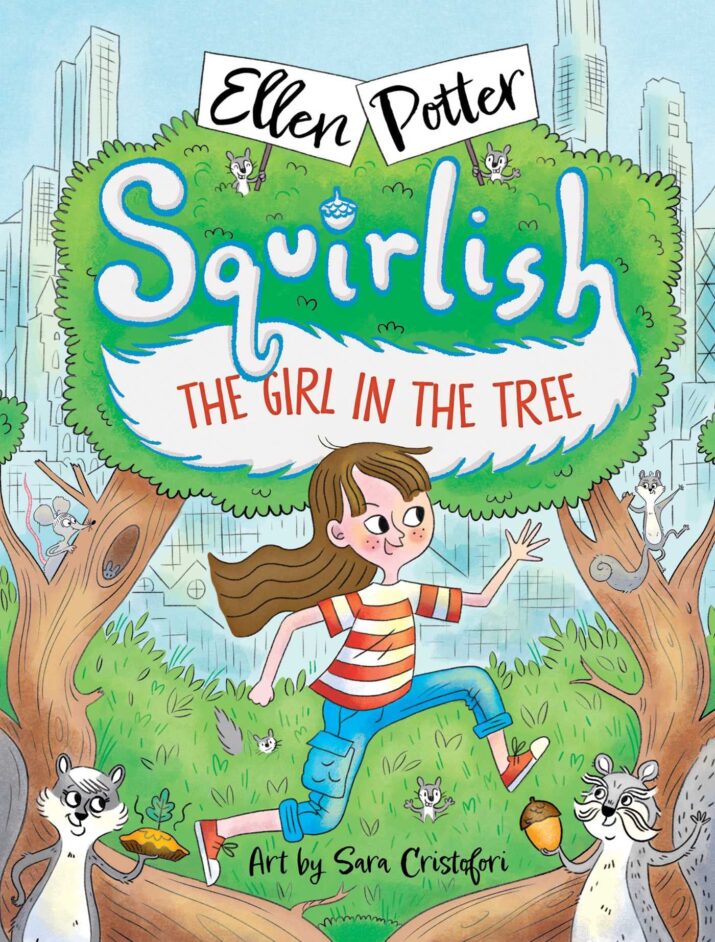
Ellen: Thanks, Melissa! Squirlish is essentially an urban spin on The Jungle Book. A squirrel in New York City’s Central Park finds a human baby under a bush and he raises the little girl as his own. She becomes Cordelia, The Squirrel-Girl of Central Park. While the story follows Cordelia’s madcap adventures in the park, it also looks at her struggle to find her place in the world. The series explores the themes of chosen families, self-identity, and the courage to extend oneself in order to make friends.
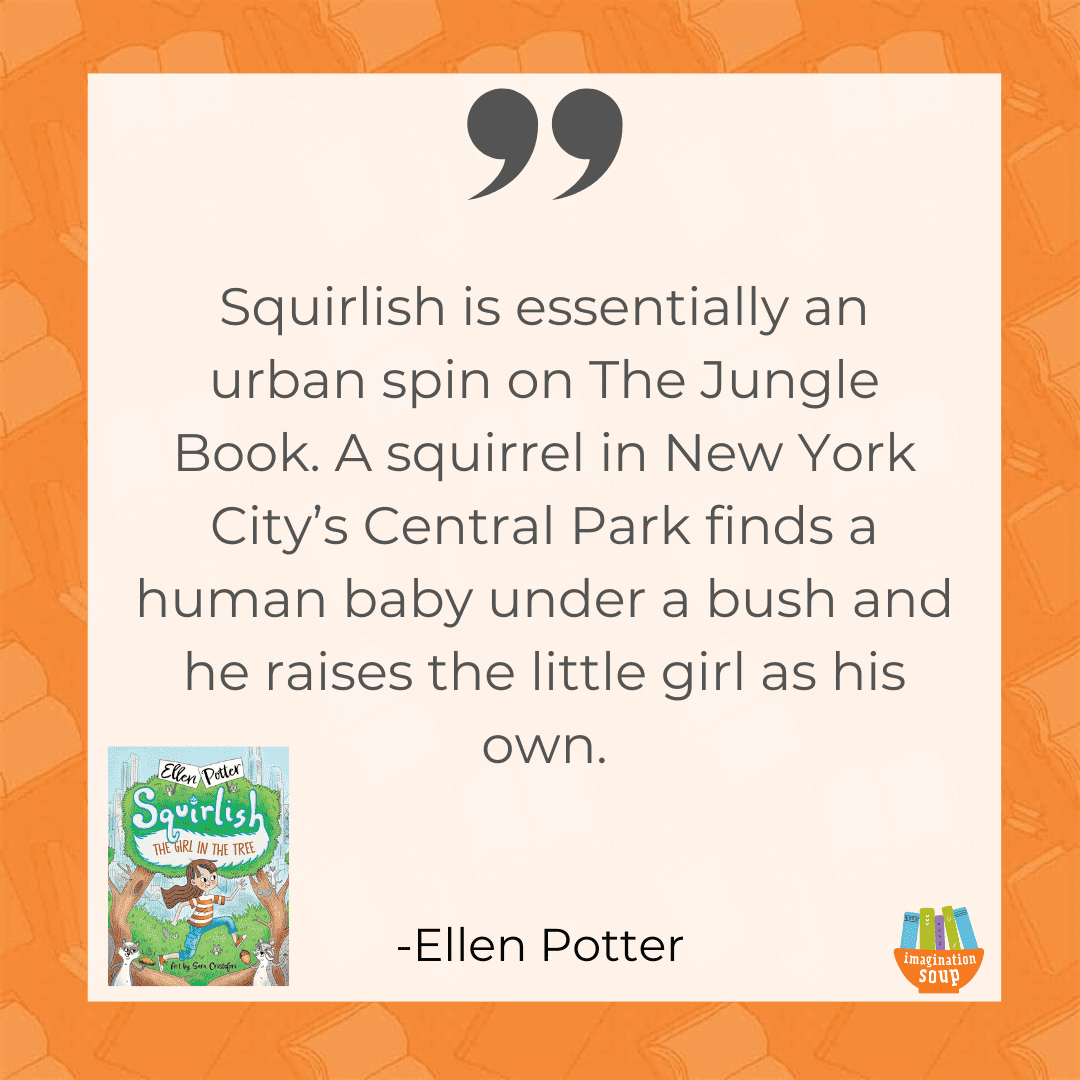
Most of my story ideas are ignited by dreamy “what if” questions. In the case of Squirlish, that “what if” question came from a real-life incident. My friend found an orphaned baby squirrel in her backyard. It was so tiny and delicate that, for a while, she carried it around in her bra to keep it warm. I remember sitting in her kitchen, chatting with her over coffee, as this little baby squirrel peered out over the top of her shirt. My friend successfully raised the squirrel until it was old enough to be released. Every so often it would appear outside her kitchen window to say hi.
What if, I asked myself, it was the other way around? What if a squirrel found a human baby and raised it as its own? Would the child live in a squirrel’s nest in a tree? Would she be able to “talk” to squirrels? Would she be able to make human friends? The more I considered this scenario, the more fun and interesting it seemed. Central Park seemed like the perfect setting, too, with its different “neighborhoods.” Squirrels are territorial, so it made sense that the squirrels from each neighborhood would have reflected qualities. In Squirlish, the seafaring squirrels live near the Boat Pond, the artsy squirrels live near the Metropolitan Museum of Art, and the literary squirrels live near Shakespeare’s Garden. And, of course, the Squirrel Queen lives in Central Park’s famous Belvedere Castle.
Book 2 in the series, Squirlish: Shark in the Park, will be coming out next summer.
Melissa: Who will love Squirlish — what ages and interests?
Ellen: The book is for readers ages 6 to 9. It’s a series for kids who enjoy adventure, humor, and maybe a talking rat or two.
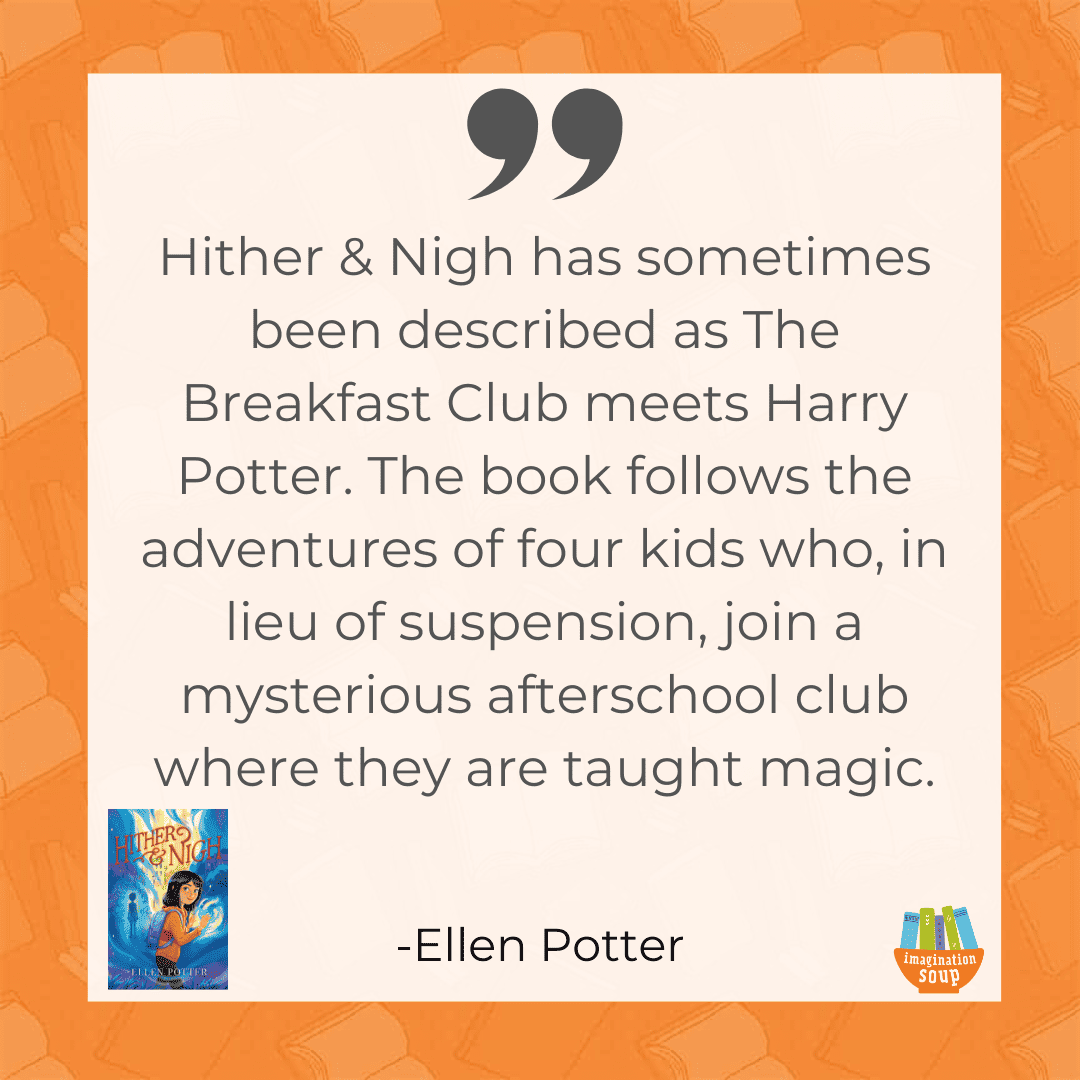
Melissa: You have a middle grade book, HITHER AND NIGH, which is one of my favorite fantasy books and made my Best Middle Grade Books of 2022 list. Can you tell readers more about the story?
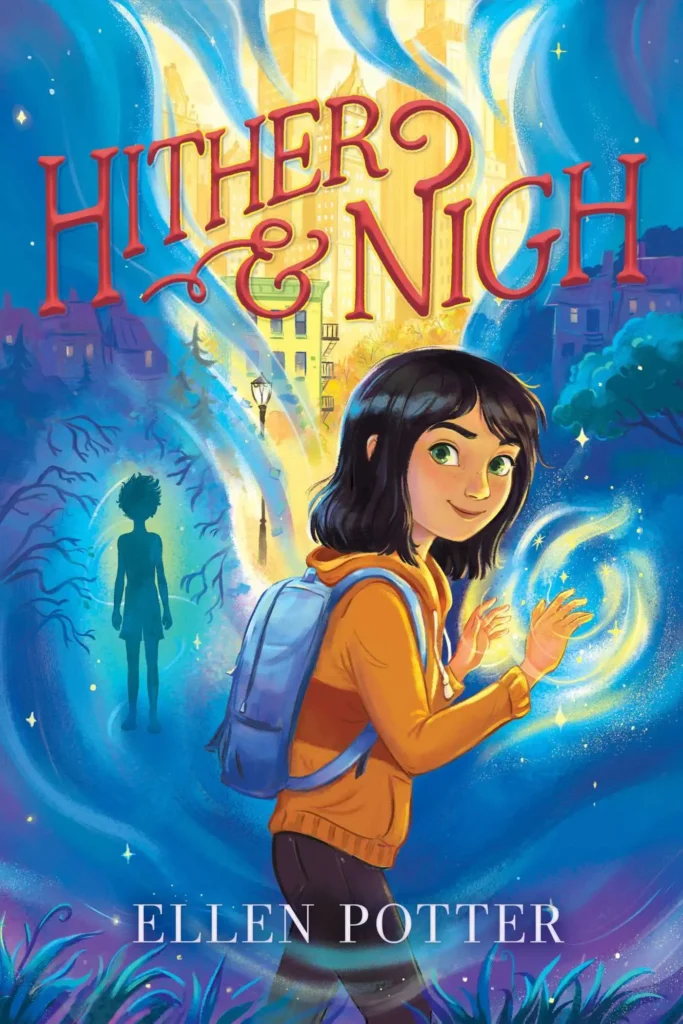
Ellen: Hither & Nigh has sometimes been described as The Breakfast Club meets Harry Potter. The book follows the adventures of four kids who, in lieu of suspension, join a mysterious afterschool club where they are taught magic. These kids aren’t perfect—they each have troublesome pasts—but together they bring out the best in each other. While they practice their magic, they stumble into a parallel New York City, magical and sinister, where they are plunged into a quest to find a missing boy.
Hither & Nigh’s sequel, The Golden Imaginarium, is coming out on October 10.
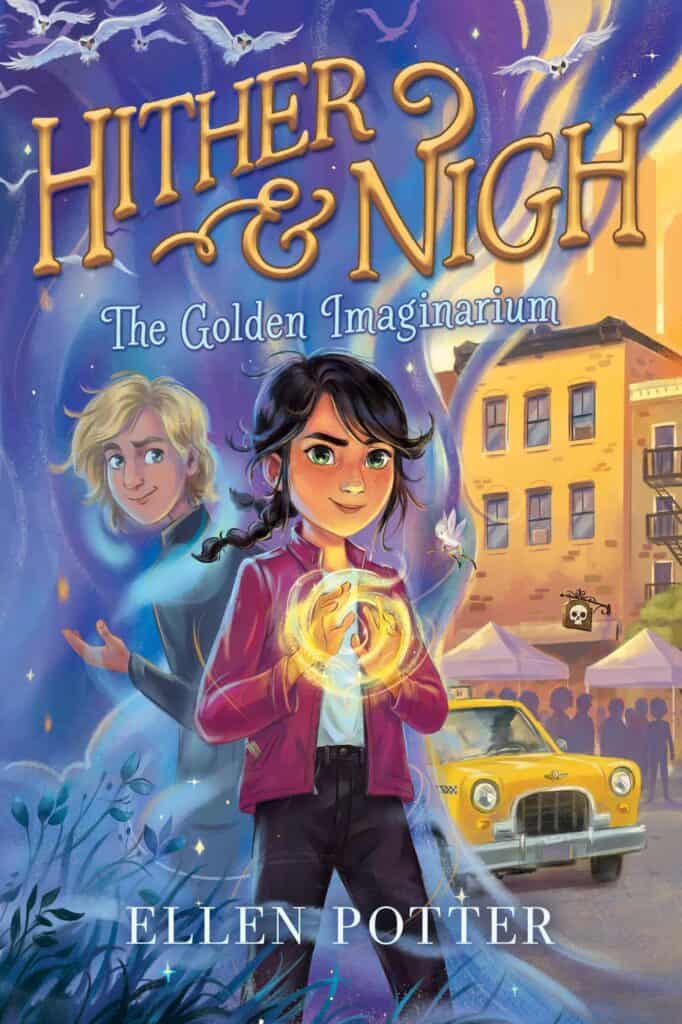
Melissa: Will you also share how you thought up such a cool world? (The unique world is one of the reasons I love it so much!)
Ellen: The world of the Nigh was inspired by the origin story of the Icelandic Hidden People, or elves. According to the folktale, the Great Spirit came down to visit Eve while she was in the middle of bathing her children. She’d only gotten around to cleaning half of her children, while the other half were still filthy—which begs the question, where the heck was Adam in all of this scrubbing? In any case, Eve hid the dirty kids, which was a big mistake. The Great Spirit did not appreciate being conned and declared that the dirty kids would always and forever be hidden from sight. That’s why we can’t see elves, the legend asserts, yet they are all around us.
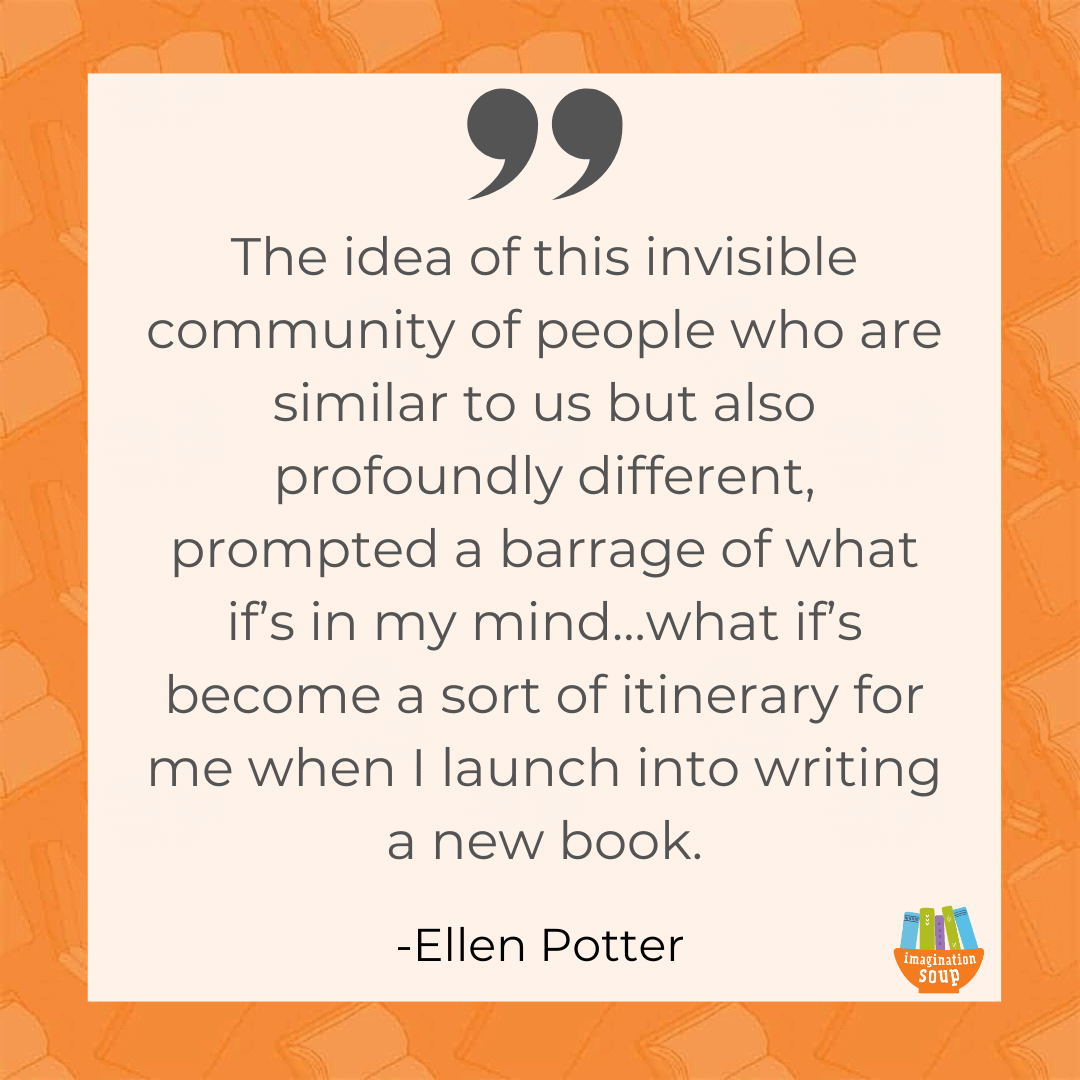
The idea of this invisible community of people who are similar to us but also profoundly different, prompted a barrage of what if’s in my mind. What if there is an invisible New York City that exists side by side with the city we know? What if it is full of beauty and magic, but the magic has been twisted and abused. What if a child from our New York City is trapped there? These what if’s become a sort of itinerary for me when I launch into writing a new book.
Melissa: You also have many other children’s books. Talk about prolific! Can you tell us more about your book for growing writers?
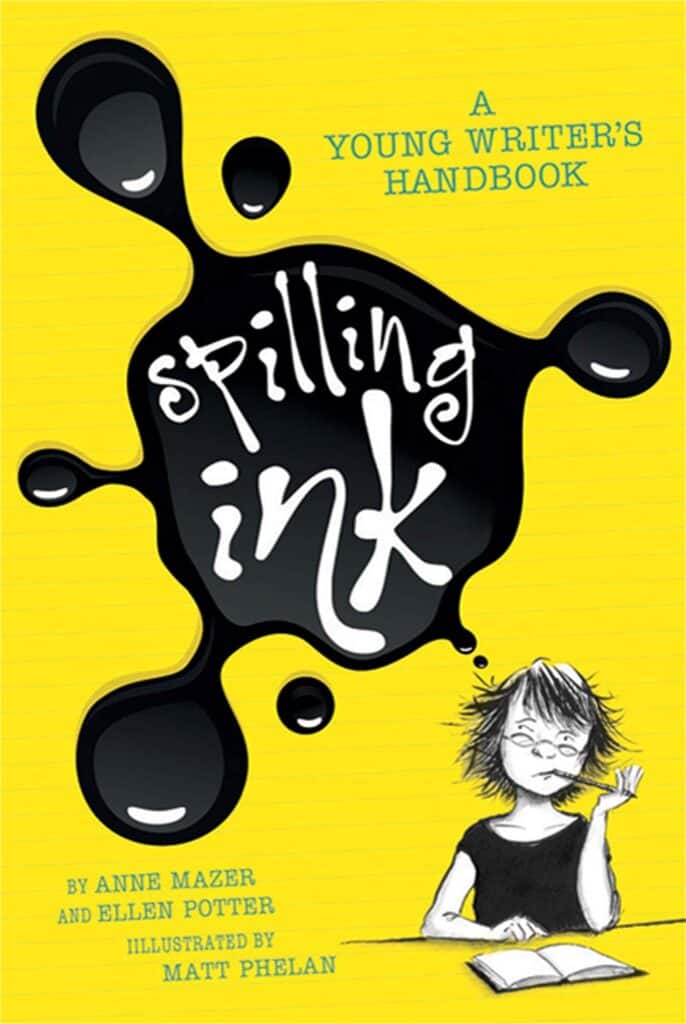
Ellen: I co-wrote Spilling Ink; A Young Writer’s Handbook with the wonderful Anne Mazer. We had both been receiving so many emails from kids who had excellent questions about the writing process: What do I do when I’m stuck? How do I make my characters come alive? How do I know what point of view to use? Anne and I decided to create the sort of writing handbook that we’d wished we’d had as kids. Spilling Ink has been very popular throughout the years, and we’re thrilled that it has become a staple in many classrooms. We’ve even heard from a few community colleges who use it in their first-year writing curriculum.
Melissa: Do you have a favorite tip you like to share with young writers?
Ellen: If the writing fairies offered me a single writing gift, I would choose the gift of persistence. I’ve known many stunningly gifted writers who never finish a single story. And I get it! Writing often brings out all our demons—“Am I smart enough to be a writer?” “Will anyone want to read this story?” Those self-doubts can paralyze a writer. In the end, though, you just need to stay the course, even when it’s uncomfortable. It helps to keep your focus squarely on your characters and their dilemmas. Plus, always remember that first drafts are generally lousy. Most of the best work happens in revision.
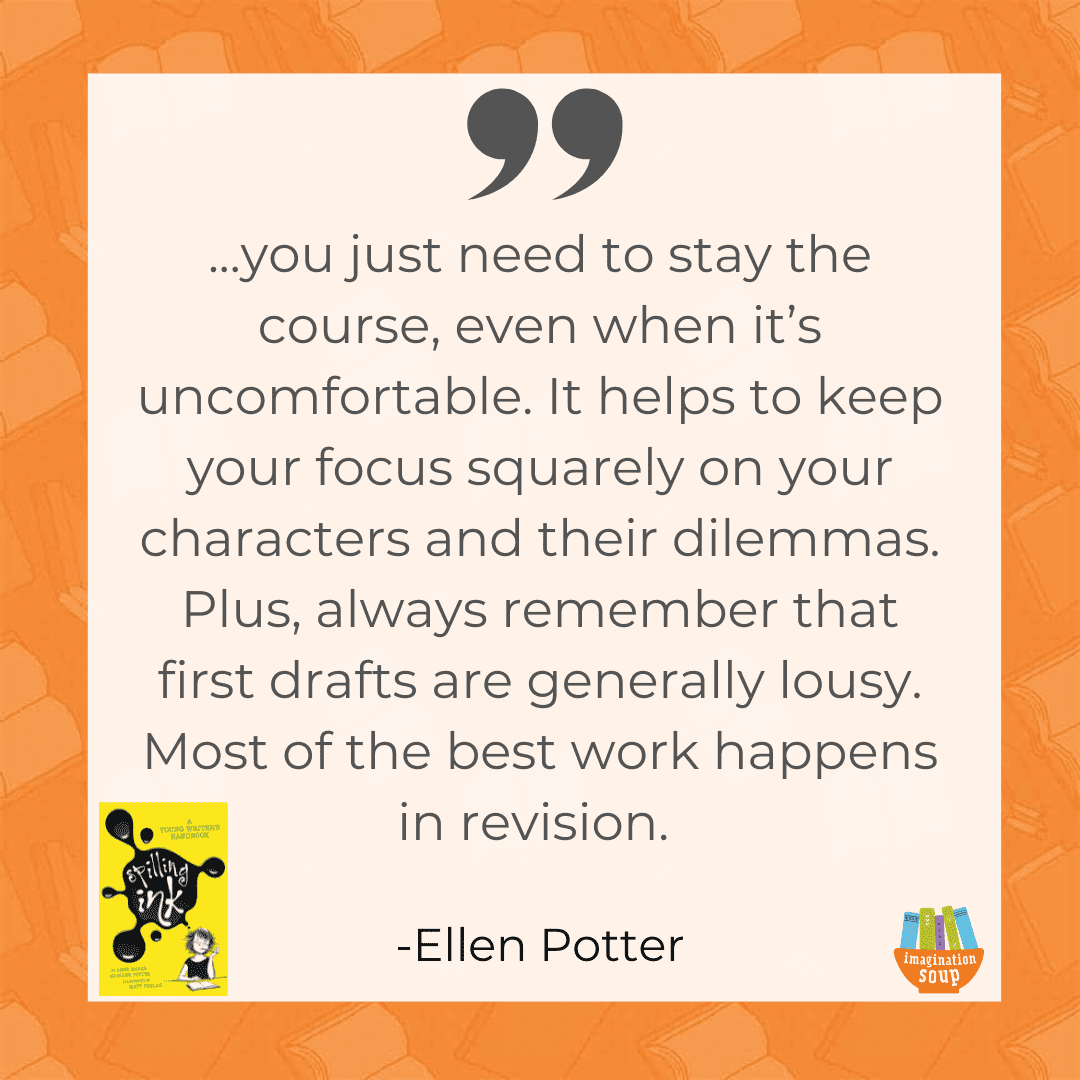
Thanks, Melissa! I’ve been a fan of Imagination Soup for years, so it’s an honor to be interviewed by you!
About Ellen Potter
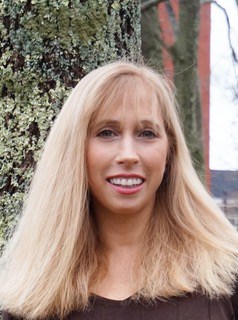
Ellen Potter is the author of more than twenty award-winning novels for children and young adults, including Squirlish, the Hither & Nigh series, Olivia Kidney, Slob, the Big Foot and Little Foot series, The Piper Green and The Fairy Tree series, The Humming Room, The Kneebone Boy, and Spilling Ink, A Young Writer’s Handbook. Several of her books have been chosen by the New York Public Library for their Best 100 Book for Children list and have appeared on numerous state reading lists. Ellen lives with her family in upstate New York. For more information about Ellen and her books, visit https://www.ellenpotter.com.
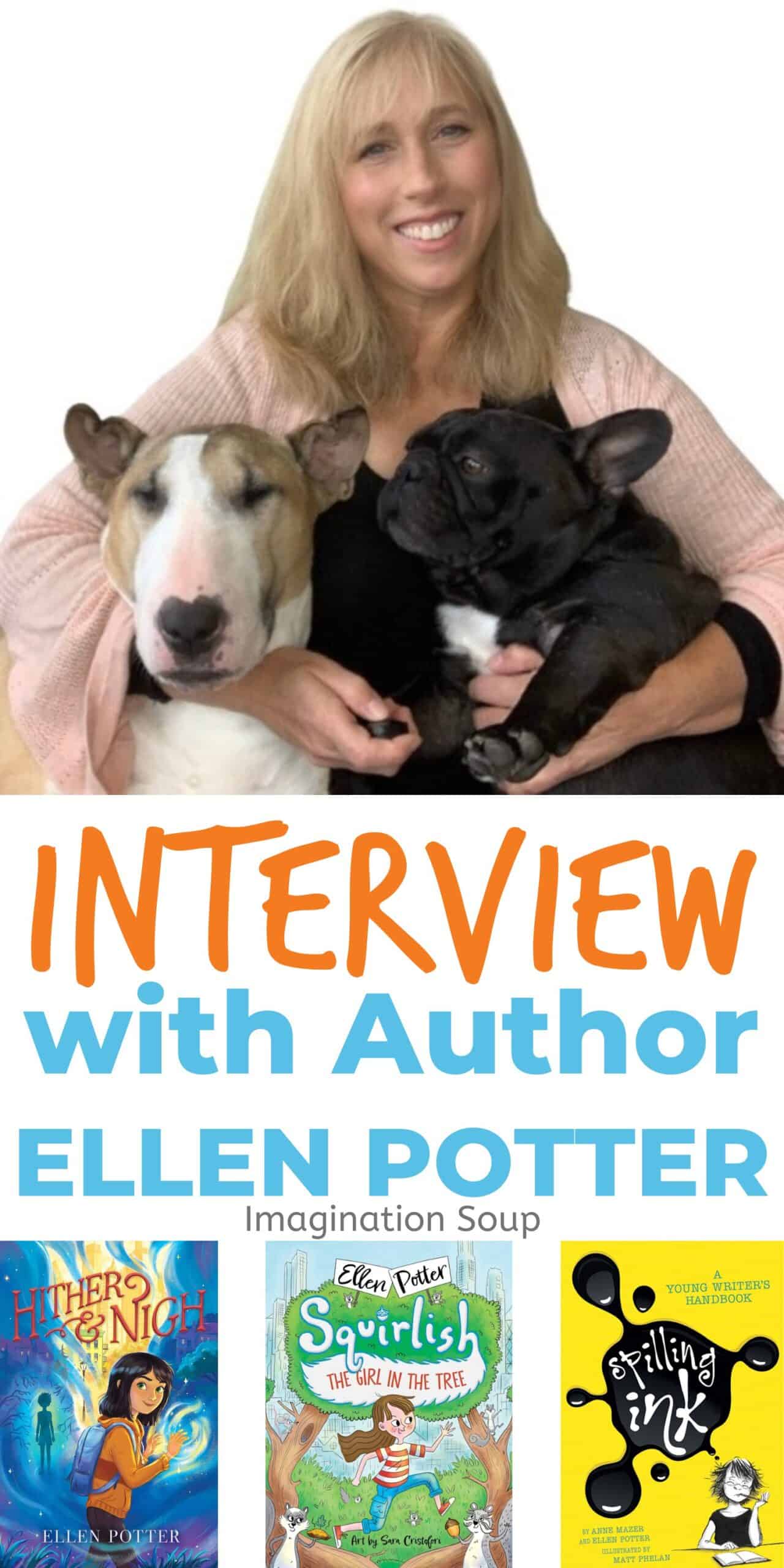
KEEP READING

 PARENTING TIPS
PARENTING TIPS PREGNANCY
PREGNANCY BABY CARE
BABY CARE TODDLERS
TODDLERS TEENS
TEENS HEALTH CARE
HEALTH CARE ACTIVITIES & CRAFTS
ACTIVITIES & CRAFTS